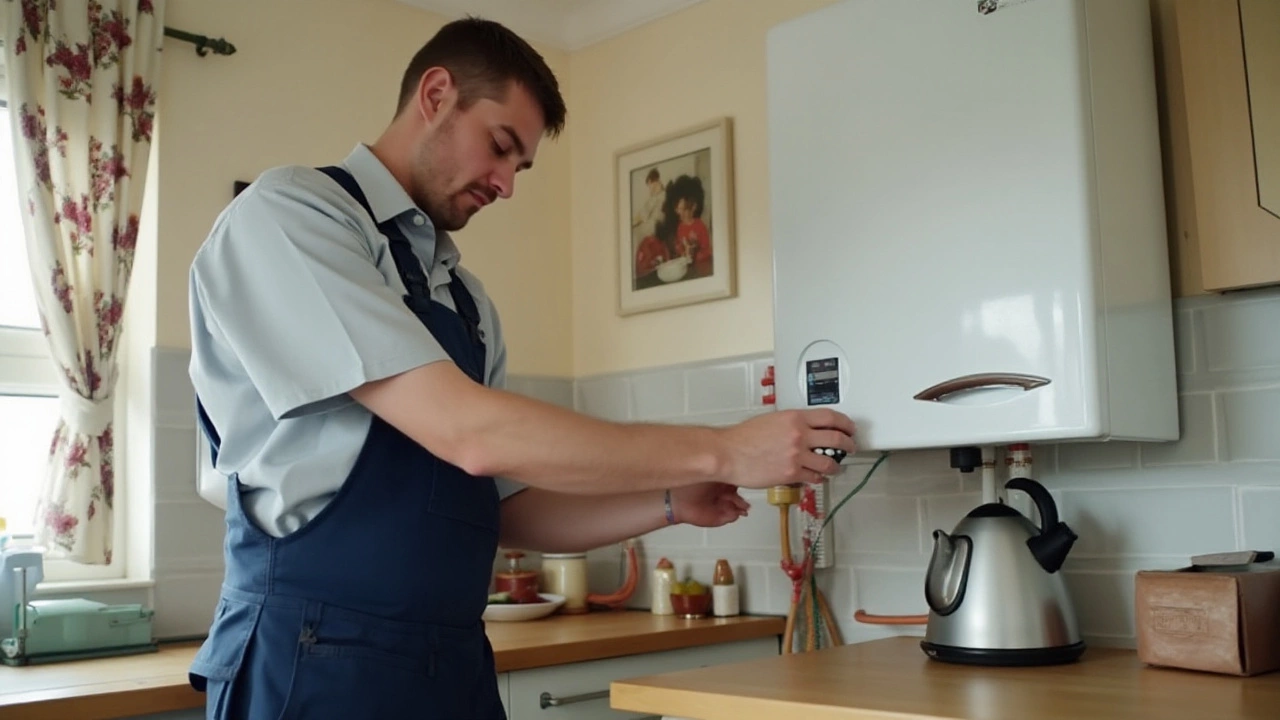Heating Systems: How to Keep Your Home Warm and Efficient
When the chill sets in, the last thing you want is a heating system that throws a tantrum. Whether you have a gas boiler, an electric hot water heater, or a mix of radiators and thermostats, knowing the basics can save you time, money, and a cold shower. Below you’ll find simple checks, quick fixes, and maintenance habits that keep the heat flowing without calling a pro for every hiccup.
Common Problems and Quick Fixes
Most heating complaints fall into three buckets: no heat, strange noises, and unexpected shutdowns. If your boiler is making a loud bang or whine, the first thing to check is the pressure gauge – it should sit between 1 and 1.5 bar. Low pressure is often the culprit and can be topped up with a simple valve turn. A high‑pitch squeal usually means air in the system; bleeding the radiators releases that air and restores steady heat.
Hot water heaters love to reset themselves when something goes wrong. If you notice the reset button popping up repeatedly, the thermostat might be failing or the heating element could be coated with mineral build‑up. Turn off the power, wait a minute, then press the reset. If the problem returns, it’s a sign the element or thermostat needs replacement – a job most DIYers can handle with a screwdriver and a multimeter.
Another frequent issue is a boiler that refuses to fire up after you switch it on. Often, the flame sensor is dirty, or the gas valve didn’t open. Give the unit a quick visual inspection: look for any obvious leaks, clear away dust from the burner, and make sure the gas supply is on. If the boiler still won’t light, it’s safest to call a certified technician.
Maintenance Tips That Save Money
The best way to avoid emergency calls is a regular maintenance routine. Scheduling an annual boiler service is a smart move – a qualified engineer will clean the heat exchanger, test safety controls, and catch wear before it blows up. This service usually costs less than a major repair later on.
Don’t forget the simple things you can do yourself. Every few months, wipe the dust off the radiator valves and check for leaks. For electric hot water heaters, inspect the anode rod (the metal stick inside the tank) and replace it every two to three years to stop corrosion. A clean anode prolongs the life of the whole unit.
Thermostats are tiny but mighty. If you’re constantly tweaking the temperature, your thermostat might be off‑track. Replace the batteries, clean any dust, and consider a programmable model that lowers the heat when you’re out. You’ll notice lower bills without sacrificing comfort.
Lastly, think about the whole house envelope. Drafty windows and doors force the heater to work harder. Sealing gaps with weather‑stripping or using heavy curtains at night cuts the workload dramatically. It’s a low‑cost tweak that pairs perfectly with a well‑tuned heating system.
By keeping an eye on pressure, listening for odd sounds, and sticking to a basic maintenance calendar, you’ll enjoy reliable heat all winter long. When a problem does pop up, start with these quick checks before you pick up the phone – many issues are fixable in under an hour, and you’ll feel a lot more in control of your home’s comfort.
Maximizing Your Boiler's Lifespan: Tips and Timeline
0 Comments
Learn about the lifespan of your boiler and how proper maintenance and timely repairs can extend its life. Discover common factors that affect boiler longevity, tips for routine check-ups, signs that your boiler needs attention, and why professional advice is essential. Keep your heating system efficient and reliable with these insights.
Read More